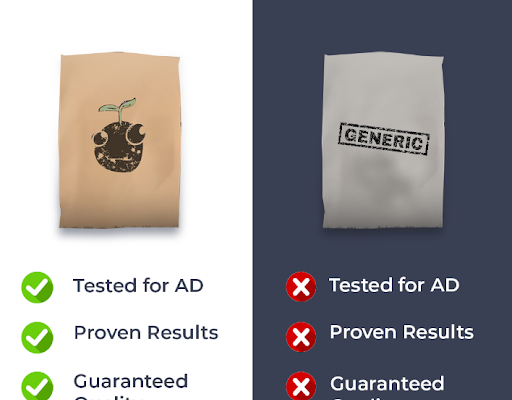Here are 5 essential aspects to understand about biogas and how CreChar supports this process!
Biogas Production Timeline: Introduce animal or plant biomass (such as manure, slurry, and crop residues) into an anaerobic digester. Heat the mixture, and stir regularly. After a minimum of 30 days of fermentation, bacteria work their magic, leaving behind biogas on one end and digestate on the other.
The inclusion of our flagship CreChar product in the anaerobic digestion process optimises the microbial environment. Which enhances the efficiency of biogas production and increases profitability.
Digestate as a Sustainable Fertilizer: While biogas is harnessed for heat, electricity, and vehicle fuel, the byproduct, digestate, emerges as a valuable fertiliser. Unlike its chemical counterparts, digestate, rich in organic matter and minerals, proves environmentally friendly when spread on soil. Its carbon and environmental cost is significantly lower than that of fossil fuel-intensive nitrogen and phosphorus fertilisers.
CreChar, could potentially influence the composition of digestate. Its rich organic matter and mineral content may enhance the quality of digestate, making it an even more valuable and a sustainable fertiliser when spread on soil.
Biogas and the Circular Economy: Biogas stands out as an ideal energy source for the circular economy due to its short supply chain. Anaerobic digesters, strategically placed near farms and organic matter suppliers, minimise biomass transport. This local approach ensures low carbon emissions, benefiting towns and industrial zones with easy access to biogas production.
By improving biomethane output by up to 10%, Carbogenics’ CreChar contributes to the circular economy by maximising the energy yield from organic waste. This aligns with the short supply chain philosophy, as efficient biogas production minimises the need for extensive biomass transport. CreChar is carbon negative additive unlike chemical ones and permanently removes carbon storing it in the soil for hundreds of years.
Environmental Benefits of Biogas Production: Beyond its short supply chain, biogas production contributes to environmental sustainability. Firstly, digesters capture and transform organic matter, mitigating the release of greenhouse gases. Secondly, biogas replaces higher-emission fossil fuels across various applications, including heating, transportation, and electricity production. Thirdly, the addition of digestate to soil allows farmers to cultivate cover crops that act as a “carbon sink,” storing CO2 in the soil.
The increased biomethane output facilitated by CreChar has direct environmental benefits. It not only reduces the reliance on higher-emission fossil fuels but also enhances the overall environmental sustainability of biogas production by capturing and transforming more organic matter into a cleaner energy source.
Odour Reduction through Anaerobic Digestion: Anaerobic digestion, by breaking down organic matter in the absence of oxygen, effectively reduces the odours associated with biogas production. This process destroys volatile fatty acids responsible for decomposition odours. Farmers use this method to minimise odours from agricultural activities like manure spreading. Operators adopt measures such as working in closed buildings and air treatment to control odours during transport, storage, unloading, and loading stages.
While the primary focus of CreChar is on biomethane enhancement, the optimised anaerobic digestion process it promotes may indirectly contribute to odour reduction. The efficient breakdown of organic matter with the help of CreChar minimises the release of volatile fatty acids responsible for unpleasant odours.
In summary, Carbogenics’ CreChar plays a crucial role in advancing the efficiency, profitability, and environmental impact of anaerobic digestion, aligning well with the broader goals of sustainable biogas production and the transition to clean energy.




